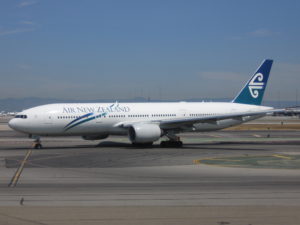Airlines wake up to benefits of mileage redemption for unsold seats
 There are few more frustrating aspects of being loyal to an airline or a global alliance than the inability to redeem the miles you’ve worked hard to earn for what are known as award flights. There is, however, something even worse: Airlines choosing to send out flights with empty seats rather than make some of them available for mileage redemption.
There are few more frustrating aspects of being loyal to an airline or a global alliance than the inability to redeem the miles you’ve worked hard to earn for what are known as award flights. There is, however, something even worse: Airlines choosing to send out flights with empty seats rather than make some of them available for mileage redemption.
I’m referring to saver award levels, not those that require double or triple miles. As it is, round-trip saver awards require as many as hundreds of thousands of miles these days.
Last week, I called out Air New Zealand, one of the worst offenders — particularly in Business Class — on Twitter. With a few hours left until its Los Angeles-London flight on Feb. 2, there were six unsold Business seats. Yet not one of them was available on miles. On the same flight the next day, 16 Business seats were open — again, no award space. The coach cabin was wide open on both days, so the carrier wasn’t protecting Business seats to accommodate a so-called oversell in economy…
>> READ THE FULL STORY ON THE HUFFINGTON POST








